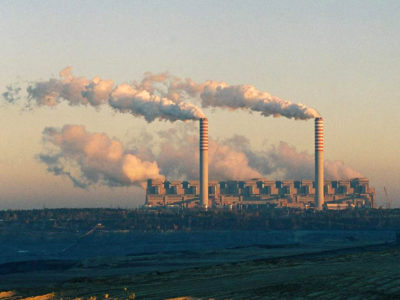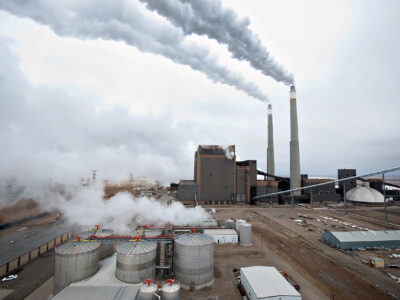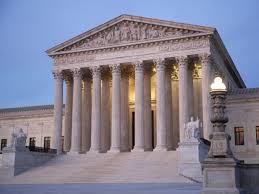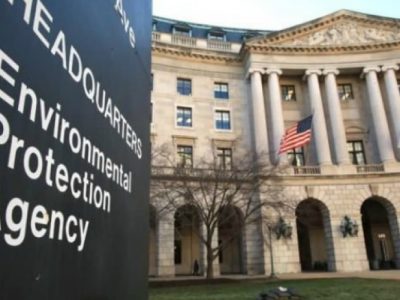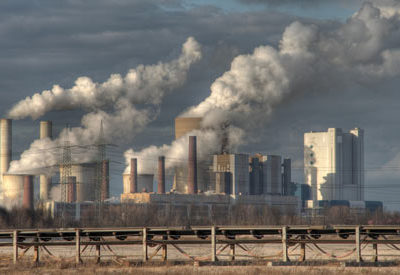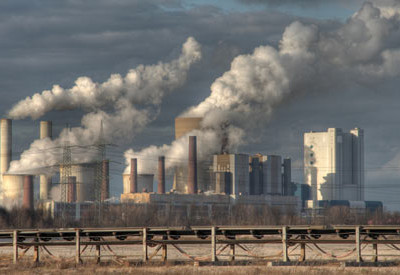Section 111(d)
The Emperor’s New Endangerment Theory (Part II)
To justify a decision not to regulate CO2 from power plants, EPA had to twist statutory language beyond all recognition.
According to EPA, carbon emissions from the U.S. power sector are too insignificant to warrant regulation. This is a bizarre conclusion: U.S. power sector’s emissions are around 6.5 billion tons, just below Russia’s total emissions from all sectors. To reach this conclusion, EPA has proposed a novel reading of the Clean Air Act. In EPA’s view, before it could regulate those emissions, it would first have to make a formal finding that they “cause or significantly contribute” to climate change, and (2) that this has to be judged on the basis of the sector’s percentage of total global carbon emissions. The statute doesn’t say either of those things.
CONTINUE READINGThe Legal Complexities of Deregulating Power Plant Carbon Emissions
The Supreme Court struck down Obama’s powerplant regulation. but it didn’t endorse Trump’s first try either.
We are likely to end up with a Trump rule for powerplant emissions that is much weaker than the Biden rule, but not as weak as EPA’s effort in the first Trump Administration. And the process will take Trump longer this time, with a greater litigation risk.This matters because even a very weak rule may require significant investments in improving powerplant efficiency, which could result in some plant closures.
CONTINUE READINGEPA’s New Power Plant Rules Have Dropped. What Happens Next?
Media battles. Lawsuits. Stay requests. And political mayhem.
The release of Biden’s new climate regulations for power plants will unleash a maelstrom of legal and political battles. One key question: Will the Supreme Court short circuit the litigation process by staying the rules.
CONTINUE READINGThe Utility Response to EPA’s Climate Rules
The power industry apparently shares some progressive doubts about CCS and hydrogen
There are three big takeaways from the utility industry’s comments on EPA’s proposed new climate rules. First, the industry seems to share progressive concerns about whether we can count on hydrogen and CCS (carbon capture and sequestration). Second, the industry doesn’t invoke the major question doctrine, making it clear that it does not view such …
Continue reading “The Utility Response to EPA’s Climate Rules”
CONTINUE READINGEPA and the Student Loan Decision
Will the major questions doctrine block EPA’s proposed rules?
Biden v. Nebraska, the student loan case, provided a new opportunity for the Court to apply the major question doctrine. Does this decision increase the threat that EPA’s proposed new regulations will be struck down under this doctrine? A careful reading of the majority opinion is at least somewhat reassuring. The Court painted a picture …
Continue reading “EPA and the Student Loan Decision”
CONTINUE READINGWhat the Supreme Court Left Standing
No, the Court didn’t eliminate EPA’s ability to fight climate change.
The Supreme Court’s ruling in the West Virginia case left many people with the impression that it eliminated the government’s power to regulate carbon emissions. There are quite a number of areas of climate law that the Supreme Court has left untouched. Here’s the EPA authority the Court hasn’t touched: EPA’s jurisdiction over greenhouse gases. …
Continue reading “What the Supreme Court Left Standing”
CONTINUE READINGWest Virginia v. EPA: A Quick Explainer
This video lays out the issues, what the Court did, and where EPA can go from here.
CONTINUE READINGThe Supreme Court Curbs Climate Action
The ruling in West Virginia v. EPA was about as good as we could expect given the makeup of the Court.
Today, the Supreme Court decided its most important environmental case since 2007. We didn’t dodge the bullet. It’s more than a flesh wound but it didn’t hit any vital organs . Chief Justice Roberts’s majority opinion leaves EPA other options to reduce carbon emissions from coal-fired power plants. It also gives a fairly narrow reading …
Continue reading “The Supreme Court Curbs Climate Action”
CONTINUE READINGMajor Questions About Today’s Big Climate Case
Here’s what you need to know about today’s oral argument in W. Va. v. EPA
The Supreme Court is hearing oral argument this morning in West Virginia v. EPA. The case is a challenge by the coal industry and coal states to EPA’s power to limit carbon emissions by power plants. Here’s what to look for today. Q: What is the case about? A: In practical terms, the question is what EPA …
Continue reading “Major Questions About Today’s Big Climate Case”
CONTINUE READINGBiden’s Dilemma: Limiting Carbon from Existing Power Plants
It’s not that the policy choices are that hard. It’s the 6-3 Supreme Court.
Coal- and gas-fired power plants are a major source of U.S. carbon emissions. The Obama Administration devised a perfectly sensible, moderate policy to cut those emissions. The Trump Administration replaced it with a ridiculous token policy. The D.C. Circuit appeals court tossed that out. Now what? It wouldn’t be hard to redo the Obama policy …
Continue reading “Biden’s Dilemma: Limiting Carbon from Existing Power Plants”
CONTINUE READING




